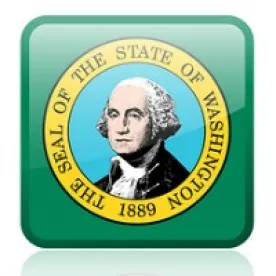INTRODUCTION
Two recent Washington state trial court decisions provide policyholders hope that they may be able to obtain insurance coverage for business interruption losses arising from Governor Inslee’s COVID-19 “shut down” orders. This alert will provide background regarding COVID-19 coverage cases nationally and a discussion of these recent Washington court decisions.
THE NATIONAL LANDSCAPE
Policyholders in the United States have filed almost 1,500 cases seeking insurance coverage for COVID-19 losses. Insurers commonly respond by filing early motions to dismiss for “failure to state a claim.” Courts in approximately 30 states have issued decisions on such early motions, with:
-
Insurers prevailing approximately 85 percent of the time, resulting in over 100 dismissals;
-
Insurer-favorable decisions usually being based on a ruling that the policyholder failed to satisfy the policy requirement of “direct physical loss of or damage to” covered property;
-
Most insurer-favorable decisions involving policies also containing a virus exclusion; and
-
Many of the pro-policyholder decisions not being rulings on substantive issues, e.g., the motions are denied because there is an insufficient factual record.
RECENT WASHINGTON CASES
Policyholders have filed more than 50 COVID-19-related insurance coverage suits in Washington courts. The courts have issued only two “merits” decisions on insurer motions to dismiss, both favorable to policyholders.
Hill and Stout PLLC v. Mut. of Enumclaw Ins. Co.1
The policyholder dental practice brought suit under its commercial property policy for the business losses it experienced as a result of Governor Inslee’s 19 March 2020 COVID-19 order. The insurer filed a motion to dismiss the suit for failure to state a claim, arguing that the plaintiff’s allegations failed to satisfy the policy requirement of “direct physical loss of or damage to” covered property. The plaintiff argued that it did suffer a direct physical loss when it was prevented from using its dental office for its intended purpose.
Because the policy did not define “direct physical loss” or “loss of” or “damage to,” the court, pursuant to Washington rules of insurance policy construction, considered dictionary definitions of these terms. These definitions of “loss” included not just “destruction,” but also “deprivation.” The court concluded that (i) the policyholder’s position that it suffered a “direct physical deprivation” of property was a “reasonable interpretation by the average lay person;” and (ii) the use of the disjunctive in the phrase “physical loss of or damage to” property required that distinctions between “loss of” and “damage to” be observed. “Clearly the language in the Policy intended to provide alternative means for coverage, otherwise the Policy would use one or the other term and not both as alternative means.” The court ruled that the insurer’s interpretation, which gave the same meaning to both “loss of” and “damage to,” was inconsistent with “the clear intent of the policy.” Slip op. at 3. The court denied the insurer’s motion to dismiss.
The court’s ruling was not a final decision on the merits. The suit is proceeding to discovery and the policyholder will have the opportunity to establish that coverage is owed under the policy.
Perry St. Brewing Co., Inc. v. Mut. of Enumclaw Ins. Co.2
The court here reached a decision on the merits in favor of the policyholder. The policyholder owned a brewery with a bar and restaurant whose operations were affected by Governor Inslee’s 16 March 2020 order prohibiting onsite consumption of food and beverages in, among other venues, bars and restaurants. Soon after commencing suit to secure coverage for its business interruption loss, the policyholder filed a motion for summary judgment to establish that its loss satisfied the policy’s “direct physical loss of or damage to property” requirement.
This court was influenced by the same principles of policy construction as those relied upon by the Hill and Stout court. Additionally, this court cited Nautilus Group, Inc. v. Allied Global Risks US, 2012 WL 760940 (W.D. Wash. Mar. 8, 2012), for the proposition that the undefined phrases “loss of” property and “damage to” property are distinct and must be interpreted to mean something different from each other to avoid either term being superfluous. Based on Washington’s rules for interpreting insurance policies, the court concluded not only that the policyholder’s interpretation of “direct physical loss” of property as encompassing the inability to use property as it was physically intended to be used was reasonable, but further that, as a matter of law, the policyholder had suffered a loss of its property when it “lost the ability to use its property at premises for its intended purpose.” Slip op. at 3. This decision is more notable than Hill and Stout because the policyholder secured a decision on the merits that it had satisfied the “direct physical loss” requirement of the policy.
These two decisions are consistent with the history of Washington courts as being a relatively hospitable forum for policyholders and provide the latter hope that, subject to other terms in their policies, they may be able to obtain coverage for their COVID-19 business interruption losses.
1 2020 WL 6784271 (Wash. Super. Ct., King Cty., Nov. 13, 2020).
2 2020 WL 7258116 (Wash. Super. Ct., Spokane Cty., Nov. 23, 2020).





 />i
/>i

